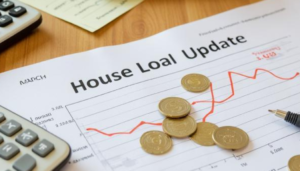Are you considering investing in French real estate but worried about the recent surge in property taxes (taxe foncière)? You’re not alone. Over the past decade, property taxes in France have jumped by a staggering +37.3%—that’s double the rate of inflation and a major concern for property owners and investors. But new research shows that the investment landscape is more nuanced than headline figures suggest.
The Reality: Property Tax Is Soaring, But Opportunity Remains
According to a study by Maslow using data from the UNPI (National Union of Property Owners), the average property tax in France has exploded, with Paris seeing an eyewatering +87.9% increase in the last ten years. Other major cities like Marseille and Strasbourg aren’t far behind, with increases of +55% and +49% respectively. Based on these figures, it might appear wise to stay away from French real estate altogether.
However, the new Tax Attractiveness Index (Indice d’Attractivité Fiscale – IAF) paints a different picture: not all markets are created equal, and some municipalities have managed to balance real estate dynamism with sensible tax management.
Key Insights: Where to Invest in France
- Not all cities are equal: Some, like Massy, Vénissieux, and Castelnau-le-Lez, continue to attract investors despite the overall increase in tax pressure.
- Medium-sized and smaller cities perform well: Towns with fewer than 15,000 residents often enjoy lower tax increases and stronger market performance.
- Tax rises and market weakness don’t always go together: There’s no systematic link between higher property tax and a sluggish real estate market—some areas maintain strong transaction volumes and price growth.
- Escape the big city pressure: Major urban centres like Paris now find their rental yields squeezed by high taxes and price tags, while medium-sized cities offer a more balanced, sustainable investment environment.
How Does the Tax Attractiveness Index Work?
The IAF ranks French cities based on two main factors: market dynamism (60% weighting) and the trend in property tax increases (40% weighting). Only municipalities with at least 100 property sales in 2014 were included—ensuring the rankings reflect meaningful, stable markets. A score of 100 means the best balance between vibrant property activity and controlled taxes.
Top Performing Cities for Investment
- Massy (Essonne): Leads the pack with optimal balance between dynamic property market and manageable taxes.
- Vénissieux (Rhône): Maintains strong transaction activity with reasonable tax rates.
- Castelnau-le-Lez (Hérault): Demonstrates that robust real estate growth can go hand-in-hand with stable taxation.
- Smaller towns, big opportunity: Places like Déville-lès-Rouen, Saint-Laurent-de-la-Salanque, and Chevigny-Saint-Sauveur offer compelling investment potential. With populations under 15,000, they provide vibrant market activity and relatively lower tax rises.
Why Medium-Sized and Peripheral Cities Shine
These municipalities tend to:
- Offer more accessible property prices and a better quality of life compared to big cities.
- Manage local taxes more tightly, producing better rental yield potential for investors.
- Combine growth and stability, appealing to both seasoned and first-time property buyers.
The Bottom Line for Investors
While the explosion in French property taxes is real and painful, it doesn’t mean you must give up on real estate investments in France. By moving away from overheated markets and seeking out thriving, tax-savvy municipalities, investors can still find attractive, profitable opportunities.
Thinking of buying property in France in 2026? Consider medium-sized cities or dynamic suburbs identified by the Tax Attractiveness Index to maximize your investment potential despite higher property taxes.
Want tailored advice on where to invest in France? Contact us for up-to-date market insights and tax strategies.









